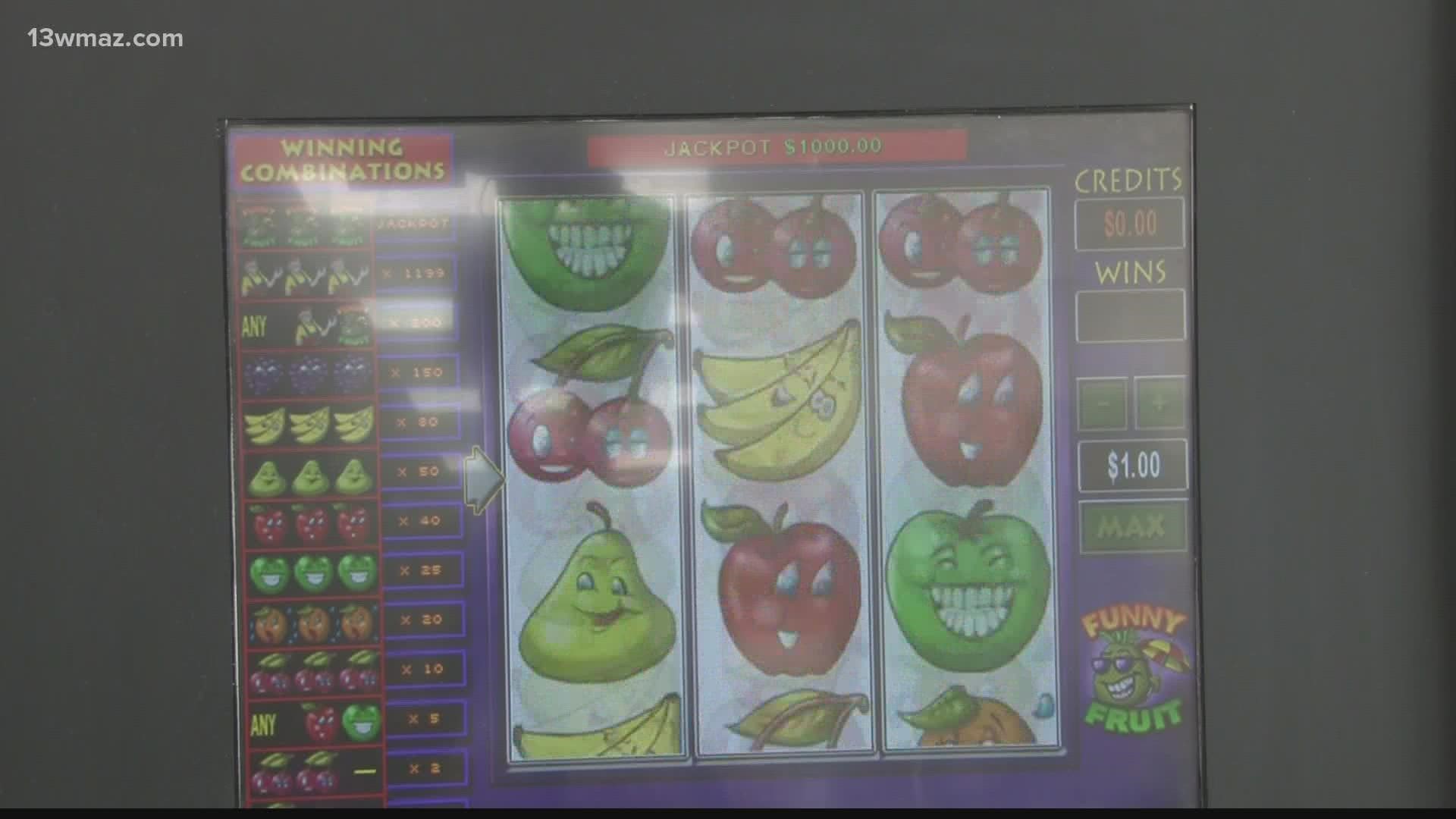MACON, Ga. — Bibb County Commissioner Virgil Watkins is proposing tighter restrictions on stores with coin-operated gambling machines.
Watkins' proposed ordinance says businesses can't have these machines within 1,500 feet of any liquor store, or 2,500 feet of small convenience stores that don't have fuel or fresh food.
Kay Reynolds has lived in east Macon for close to 20 years now.
"People are throwing away their money that they need to work and pay bills, care for their families and their children, but they're spending it on them stupid machines," said Reynolds.
For Reynolds, safety is paramount, "People take children into these stores and that's not an environment for children, and they're open 24 hours. It's not good, it's not safe, I don't trust them."
Donshay Caldwell says he's ready for a change.
"I see people every day on the machines gambling, every single day. Everybody has a goal to live a comfortable life, so when people have that type of desire, I feel like the machines are there to create a false sense of euphoria," said Caldwell.
Caldwell says people need other opportunities like better jobs.
"It preys on mental health also because you become pretty much addicted to them. When people excessively spend money, money, money that they don't necessarily have to make ends meet, I feel like that causes a problem," said Caldwell.
Both agree they want what's best for the community.
"It's really tearing neighborhoods apart. It's getting in more bad people that don't need to be in the neighborhoods. I don't feel comfortable going into the stores with all of the people in there gambling. If they want to gamble, go to the casinos -- that's what they're for, to gamble," said Reynolds.
"It's a product and people are consuming it. I just feel like it's bad for the community," said Caldwell.
According to the proposal, if a business is found operating gambling machines within the restricted areas, they could get fined at least $500 per day.
Watkins' proposal also says, under his plan, coin-operated machines could not be located near churches, public libraries, rec centers, alcohol treatment centers, public housing, or schools or colleges.

